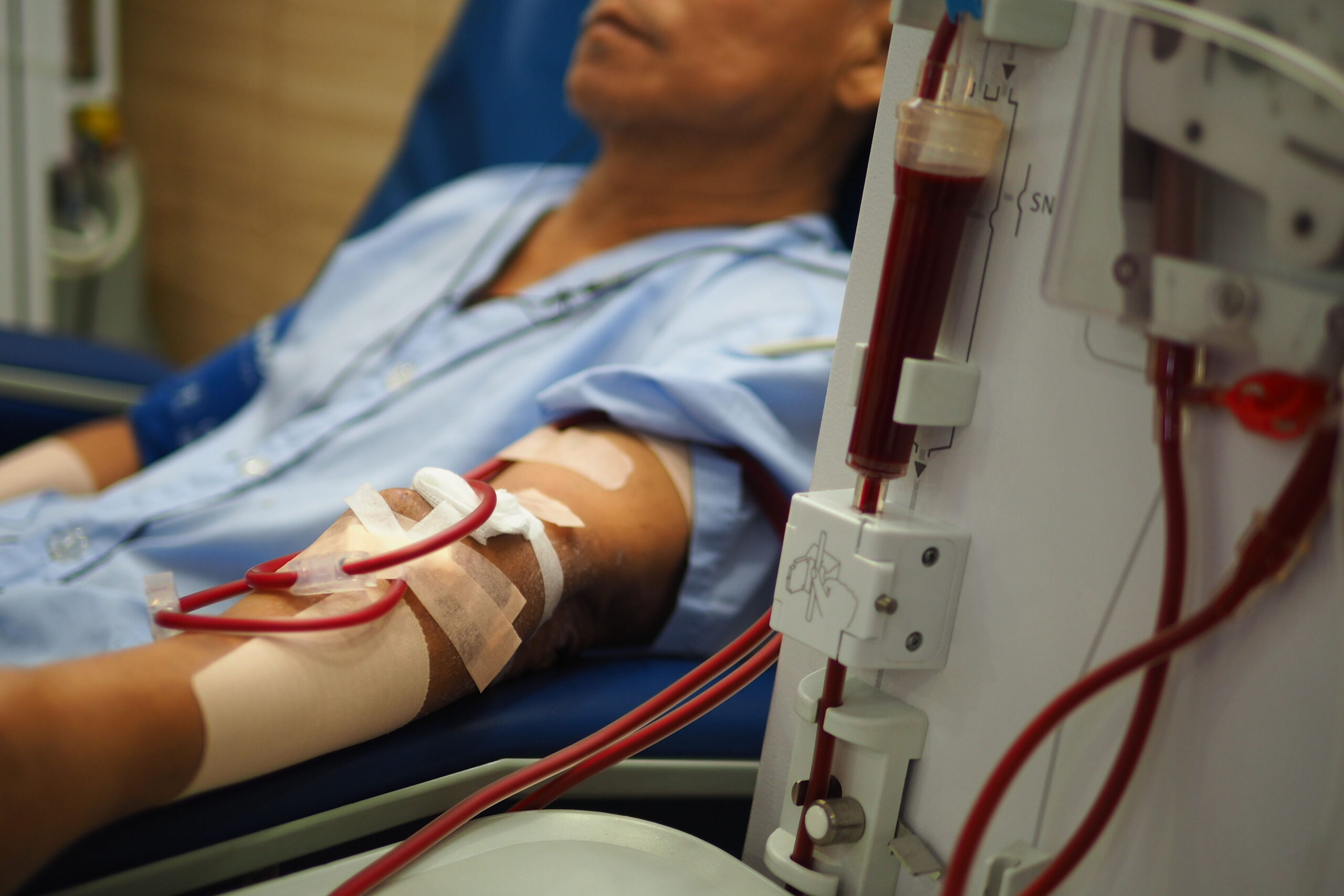Dialysis Center in Nashik

Dialysis
For patients with kidney-related conditions, timely and effective dialysis care is essential. Our Dialysis Center in Nashik provides advanced, safe, and comfortable dialysis treatments under expert supervision. We aim to improve patients’ quality of life through compassionate care, state-of-the-art machines, and personalized medical support.
What is Dialysis?
Dialysis is a medical treatment that performs the function of the kidneys when they are unable to work properly. It helps remove waste products, excess fluids, and toxins from the blood — keeping your body balanced and healthy.
Key Functions
- Removes Toxins and Waste: Filters waste from the blood when kidneys fail to do so.
- Maintains Fluid Balance: Prevents fluid overload and swelling.
- Regulates Electrolytes: Keeps sodium, potassium, and calcium levels in check.
- Supports Overall Health: Helps control blood pressure and reduces complications from kidney failure.
Types of Dialysis
1. Hemodialysis
A procedure where a dialysis machine and an artificial kidney (dialyzer) filter the blood.
Features:
- Performed at the dialysis center
- Usually done 2–3 times a week
- Each session lasts around 3–4 hours
Ideal for: Chronic kidney disease and end-stage renal failure patients.
2. Peritoneal Dialysis
Utilizes the abdominal lining, known as the peritoneum, as a natural filtration system. A dialysis solution is introduced into the abdominal cavity to absorb waste products, which are later drained.
Features:
- Can be done at home
- Continuous and flexible treatment option
Ideal for: Patients preferring home-based dialysis under doctor guidance.
Why Choose Our Dialysis Center in Nashik
- Experienced Nephrologists: Skilled kidney specialists provide personalized care.
- Modern Dialysis Machines: Advanced equipment ensures safety and accuracy.
- Comfortable Environment: Clean, hygienic, and patient-friendly facility.
- 24×7 Medical Support: Continuous monitoring and emergency assistance available.
- Strict Infection Control: High hygiene standards maintained during every session.
- Affordable Packages: Cost-effective treatment without compromising quality.
Our Dialysis Center in Nashik focuses on delivering high-quality dialysis care with compassion and precision for every patient.
When Do You Need Dialysis?
You may need dialysis if you experience:
- Chronic kidney disease or kidney failure
- High levels of urea or creatinine in blood
- Swelling in feet, legs, or face due to fluid retention
- Persistent fatigue and weakness
- Shortness of breath
- Nausea or loss of appetite
Your nephrologist will recommend the right type of dialysis based on your health condition and test reports.
Preparing for Dialysis
- Follow your doctor’s instructions on diet and fluid intake.
- Take prescribed medications regularly.
- Inform your healthcare team about any new symptoms.
- Maintain hygiene at the access site to prevent infection.
Proper preparation helps ensure a smooth and effective dialysis experience.
Life During Dialysis
At our Dialysis Center in Nashik, we ensure that each session is as comfortable as possible. Patients can rest, read, or use their phone during the process. Our dedicated team continuously monitors vital signs, ensuring safe and effective dialysis.
Diet and Lifestyle Tips for Dialysis Patients
- Follow a low-sodium, low-potassium diet.
- Limit fluid intake as advised by your doctor.
- Avoid processed and high-sugar foods.
- Include foods rich in protein (as per medical guidance).
- Maintain regular physical activity if possible.
Following a healthy lifestyle enhances the benefits of dialysis and overall well-being.
Training and Expertise
Our medical team includes qualified nephrologists, dialysis technicians, and nursing staff trained in modern dialysis care. Their expertise ensures safe procedures, infection control, and personalized attention throughout each session.
Frequently Asked Questions (FAQ)
Dialysis removes waste and excess fluids from the blood when the kidneys are no longer able to perform these functions naturally.
A typical hemodialysis session lasts 3–4 hours and is usually performed 2–3 times a week.
No. The process is not painful, though you might feel mild discomfort during needle insertion or fatigue afterward.
Yes. Many patients continue to work, travel, and live actively while receiving regular dialysis treatment under medical supervision.
Limit salt, potassium, and fluid intake. Follow the specific diet plan recommended by your nephrologist or dietitian.
Minor side effects like low blood pressure, cramps, or fatigue may occur but are manageable with proper care and monitoring.
Dialysis continues as long as the kidneys cannot function adequately. In some temporary conditions, it may be stopped if kidney function improves.

